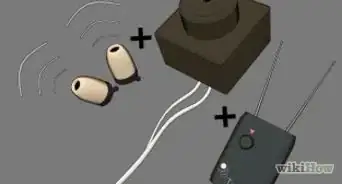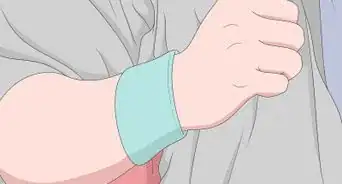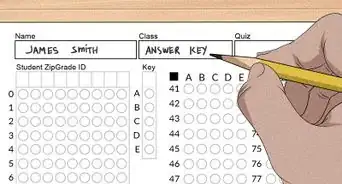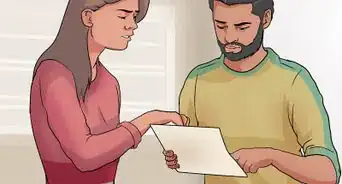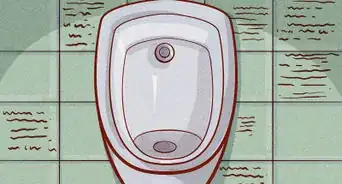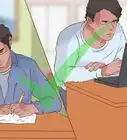This article was co-authored by Alicia Oglesby. Alicia Oglesby is a Professional School Counselor and the Director of School and College Counseling at Bishop McNamara High School outside of Washington DC. With over ten years of experience in counseling, Alicia specializes in academic advising, social-emotional skills, and career counseling. Alicia holds a BS in Psychology from Howard University and a Master’s in Clinical Counseling and Applied Psychology from Chestnut Hill College. She also studied Race and Mental Health at Virginia Tech. Alicia holds Professional School Counseling Certifications in both Washington DC and Pennsylvania. She has created a college counseling program in its entirety and developed five programs focused on application workshops, parent information workshops, essay writing collaborative, peer-reviewed application activities, and financial aid literacy events.
This article has been viewed 105,965 times.
Cheating may have long-lasting effects on your education. Getting caught cheating can have dramatic academic consequences, including potential expulsion. If you cheated on an assignment or test and feel guilty about it, coming clean to your teacher may be a better alternative than waiting to get caught.
Steps
Preparing to Admit to Cheating
-
1Learn how your school defines cheating. Many schools have academic codes of conduct outlining specific policies concerning cheating. Some academic policies separate cheating on a test from plagiarism. Before admitting to academic wrongdoing of any kind, define your actions and look up the potential consequences.
- Cheating is usually defined as copying or sharing answers, using concealed information during an exam, or submitting the same assignment for multiple classes. [1]
- Plagiarism is generally considered to be using materials created by another a person without permission or citation. Some schools take a harder stance on plagiarism and may even define it as paraphrasing another person’s viewpoint as your own.[2]
-
2Determine the evidence against you. Even if you were inclined to deny the allegations, it will be difficult if a teacher saw you copying answers or using hidden materials during an exam. If a teacher only has a suspicion that you engaged in academic wrongdoing, you may be inclined to deny the allegations. However, it is best to admit to your wrongdoing.Advertisement
-
3Have a single story. It will appear suspicious if you tell different teachers or school authorities varied versions of your story. Decide what you are going to say and stick with it. This will make you appear more credible. For example, if you tell your teacher you cheated because you didn't study, it won't help your case to tell the principal you cheated because the teacher is a tough grader. Never lie!
-
4Schedule a meeting with your teacher. Set up a time to have a one-on-one meeting with your teacher to discuss the cheating allegations. If the teacher already suspects you of cheating, you may want to say the meeting is specifically about cheating in advance. You could say: "Would it be possible to meet with you sometime this week? I would like to discuss an important matter about my approach to the last test with you."
-
5Prepare for the meeting. Go over the evidence the school has against you and work out some key points to say, such as how you plan to move forward from the incident. Learn as much as possible about the academic code of conduct at your school and the potential consequences of your actions. Many schools will have a written protocol that you can consult to learn about the consequences.[3]
-
6Inquire about your rights. You can do this by asking your teacher directly or reading your school's code of conduct. Some schools have very serious consequences for cheating and plagiarism, including suspension or expulsion. In most cases, there will need to be a hearing before you can be suspended for more than 10 days or expelled.[4]
Confessing to Cheating
-
1Own up to your actions. Don’t try to dodge the issue if you cheated and your teacher caught you because it likely will not prevent you from getting into trouble. Instead, explain why you cheated. Be clear about why you made that choice. For example, if you didn't have time to study or couldn't grasp the material, be straightforward about it. You can say something like, "I made the choice to cheat because I didn't have time to study, which was in error. Next time, I will give myself more time to properly prepare."
- Be clear about which assignment or test you cheated on. If it was just on one assignment, you will want to clarify that you did not cheat on other assignments. Be aware that your teacher will probably want to review your previous work or keep a closer eye on your future work to make sure cheating is truly a one-time incident.
- Try to put yourself in a humble perspective as you apologize.
-
2Ask for help. If you cheated because you were struggling in the class, tell the teacher you need some additional help in the subject. Be specific about which elements of the course material you don't understand. They may be able to recommend a tutor or some additional resources.
- You could say: "I am not sure I understand how to measure the surface area. This was one of the reasons why I cheated on the test. Do you know of any tutors who might be able to help me understand this topic?"
-
3Ask for extra credit. If you received a failing grade for cheating on a test or assignment, ask for a makeup assignment or extra credit work to start salvaging your grade. Your teacher might be able to give you a make-up assignment or have you do more problems than other students so that you can catch up.
-
4Show remorse. Being apologetic may lessen the consequences and punishment from cheating, but you will need to be genuine. You will need to take personal responsibility to move on from the incident. Tell your teacher the cheating was out of character for you and not something you intend to do again in the future. Although you will still likely be punished for cheating or plagiarizing, being remorseful can help minimize the lasting effects to your academic reputation.[5]
- You could say: "I am very sorry that I cheated on last week's test. I understand that this was a wrongdoing and that my actions have consequences that I will need to face. At the same time I also want to reassure you that this was a one-time incident and it will not happen again."
Dealing with the Consequences
-
1Face the punishment. Accept whatever the punishment is. It may be suspension, detention, or a failing grade on the test or assignment.
- Don’t argue. Trying to talk your way out of the punishment likely won’t make a difference and your teacher may add on. Arguing will detract from showing remorse for your actions.
- Stay positive. Keep your head up while serving your punishment. Treat it as a learning experience and move forward. It will also show your teachers you are serious about recovering from the incident and you don’t plan to cheat in the future.
-
2Make a plan to move past cheating. Collaborate with your teacher to get extra credit or make up for failing grades.
- Produce quality work. Whatever the extra assignment is, study and focus to turn in a quality assignment. Work on it as soon as possible. This can help salvage your grade in the class.
-
3Think about why you cheated. An important way to Deal with getting caught cheating in a test is to determine why you did it. This will require some self-reflection. Consider whether you were running short on time or you did not understand the material. Knowing this can help you avoid the same situation in the future.
-
4Learn from your mistakes. After identifying the cause for your cheating or plagiarism, reflect on it. If it was from a lack of studying, work harder or see a tutor in the future. If you didn’t leave yourself enough time to prepare for an assignment, schedule time to work further in advance.
Community Q&A
-
QuestionWhy would you tell your teacher that you cheated? That's crazy!
 Community AnswerSometimes a person's conscience might bother them after they've cheated, to the extent that they would feel better if they told. Also, they might learn after the fact that there's some chance the teacher will find out about it. Most teachers are more likely to be lenient if a student comes forward and admits they cheated instead of waiting for the teacher to find out on their own.
Community AnswerSometimes a person's conscience might bother them after they've cheated, to the extent that they would feel better if they told. Also, they might learn after the fact that there's some chance the teacher will find out about it. Most teachers are more likely to be lenient if a student comes forward and admits they cheated instead of waiting for the teacher to find out on their own. -
QuestionI got caught cheating on a test and my dad will be super angry. What do I do now?
 AneHaneCommunity AnswerWhile this might be really embarrassing or unsettling, it is always best to be honest and not avoid the inevitable. This could be the chance to talk with your father about potential problems you might have with that class, and you might be able to figure something out.
AneHaneCommunity AnswerWhile this might be really embarrassing or unsettling, it is always best to be honest and not avoid the inevitable. This could be the chance to talk with your father about potential problems you might have with that class, and you might be able to figure something out. -
QuestionMy teacher knows I cheated but still gave me a good grade and never told me. What do I do?
 Community AnswerDon't admit it, but don't do it again. You got lucky this time, but there will be a time when you get in trouble if you repeat the cheating.
Community AnswerDon't admit it, but don't do it again. You got lucky this time, but there will be a time when you get in trouble if you repeat the cheating.
References
- ↑ http://sa.berkeley.edu/conduct/integrity/definition
- ↑ http://www.plagiarism.org/plagiarism-101/what-is-plagiarism/
- ↑ http://drkennethshore.nprinc.com/for-teachers/responding-cheating-incidents/
- ↑ http://www.aclu-or.org/content/your-right-fair-treatment-aka-due-process
- ↑ https://www.psychologytoday.com/blog/the-time-cure/201311/true-remorse



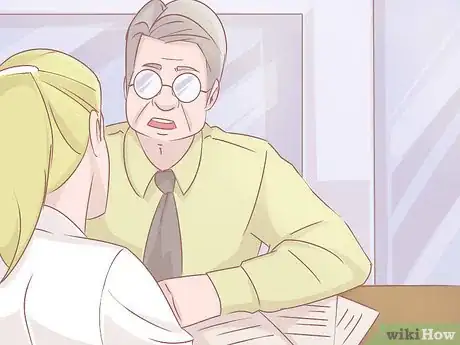
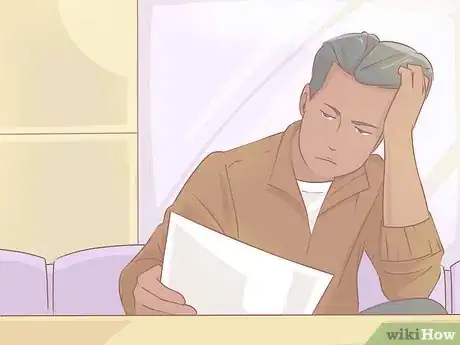


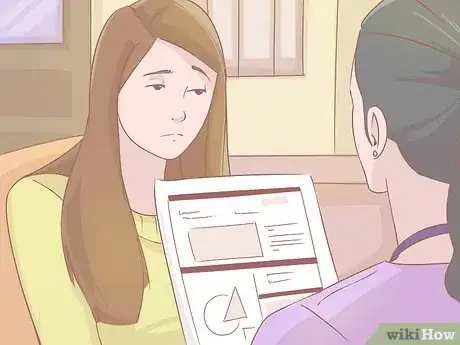
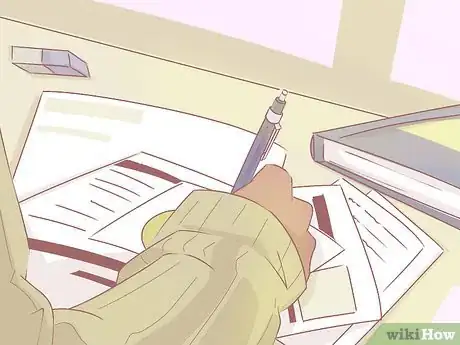






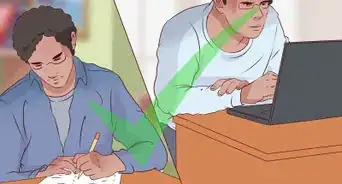
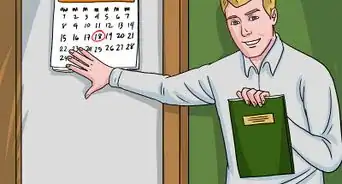


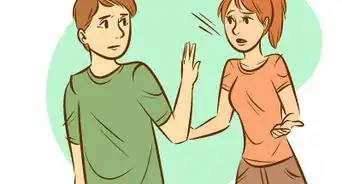

-Step-18.webp)

